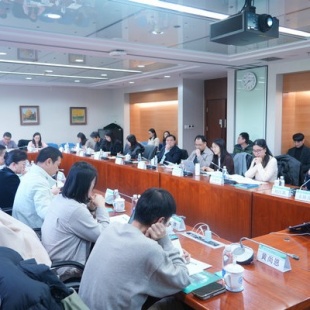Digitalization of dissemination isn't yet replacing human touch


On Nov 1, Beijing hosted a workshop on the international communication of contemporary Chinese literature and art, co-organized by the Beijing Normal University Institute of Chinese Culture and its School of Chinese Language and Literature. Over 20 experts participated online and offline to discuss how digital intelligence can empower humanities research and facilitate the global dissemination of Chinese literature and art.
Participants noted that technologies like AI and big data are transforming the dissemination of literature and art from content creation to global reception. While technology opens up new possibilities, they emphasized that the humanistic spirit and aesthetic values remain central; effective international communication requires blending technological tools with cultural awareness to enhance mutual understanding.
Keynote speaker Professor Song Jihua from the School of Artificial Intelligence at BNU highlighted how AI can integrate with literature dissemination by tackling challenges such as policy understanding and human-machine collaboration. Professor Zhang Qinghua from BNU's School of Chinese Language and Literature warned against over-reliance on technology, stressing the need for the unique value of humans and advocating for grassroots efforts in global communication.
Professor Yang Junjie, also from BNU's School of Chinese Language and Literature, suggested expanding the traditional framework of "literature" to promote contemporary China's innovative thinking in literary genres and its outstanding works to the world. Yang's colleague, Yao Jianbin, called for diverse, cross-cultural dialogues in literature dissemination, emphasizing the need for interdisciplinary collaboration.
How foreign readers perceive Chinese literary and artistic works was also an important topic discussed at the workshop. Alexey Rodionov, deputy director of the Department of Oriental Studies at Saint Petersburg University in Russia, introduced the dissemination of contemporary Chinese literature in Russia, particularly noting that online literature occupies a significant portion of this.
Wu Jinhua, head of quality control at Appen, an artificial intelligence company, explained that AI translation makes overseas dissemination of online literature more cost-effective while continuously reshaping the image and dissemination ecology of Chinese literature.





































